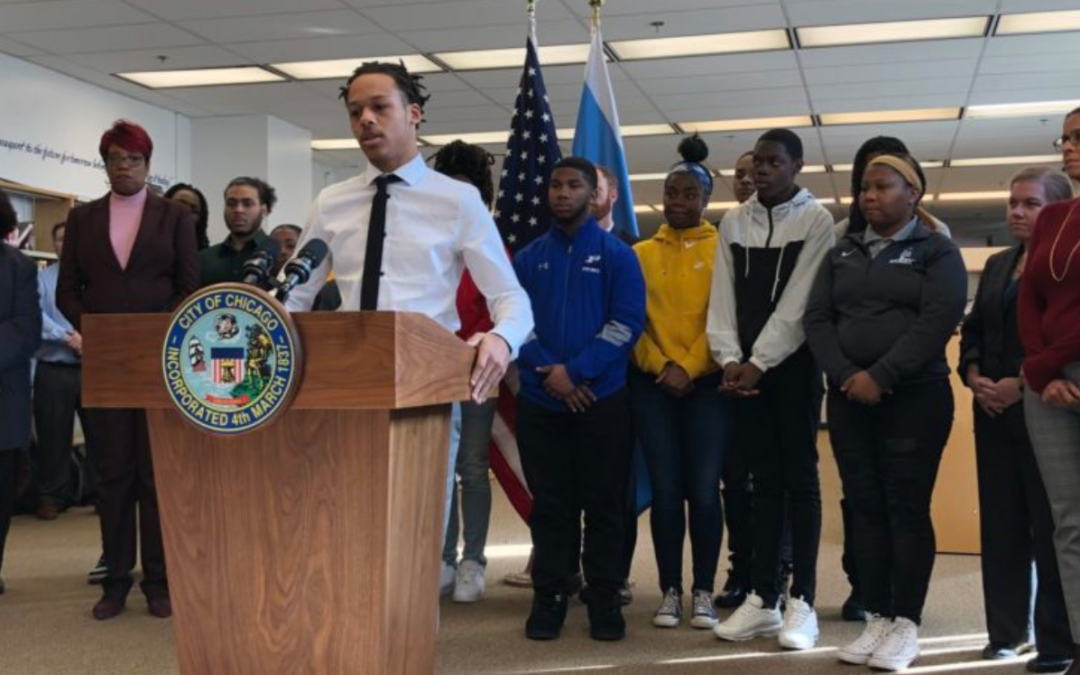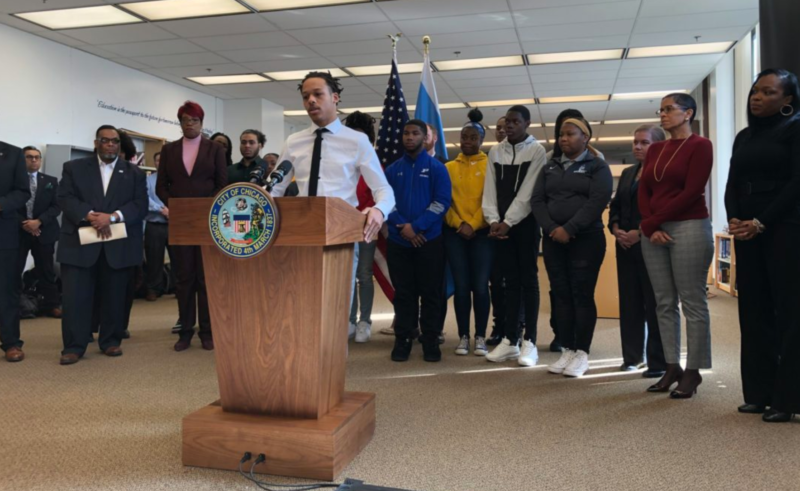
After youth violence spikes, Chicago to expand program offering therapy, mentorship

Malik Hicks speaks at a press conference about Chicago’s new violence prevention program.
This article originally appeared on Chalkbeat.
With 11 children shot just a few weeks ago in Chicago, Mayor Lori Lightfoot announced on February 21 the expansion of a program to offer therapy, field trips and mentorship to young people deemed at high risk of experiencing gun violence and trauma.
Based on a pilot run last summer, the program promises a three-year investment, starting with $1.1 million this summer, to offer more than 2,000 young people emotional and social support.
Besides helping teens cope with the fallout of violence, the program also aims to convince them not to pick up a gun, or engage in conflict that could end in violence.
“If you’ve picked up a gun, you’ve picked up a ticking time bomb,” Lightfoot said at a press conference at Phillips High School in the Bronzeville neighborhood.
Chicago has a responsibility to help young people make good choices, the mayor said. “As a city, we have a fundamental obligation to ensure young people who are involved in gun violence have the resources and supports they need to get back on the right path.”
Young people in Chicago are disproportionately likely to be involved in gun violence — they are 11% of the city’s population, but make up 19% of homicide victims and 25% of homicide suspects.
Many of the victims, and those actively involved in violence, are likely to have attended an alternative school. In the four years through 2016-17, one-quarter of the 425 Chicago Public Schools students who died by violence had been attending those schools. While only 2% of district enrollment, alternative school students are disproportionately affected by violence in the city, according to a Chicago Reporter investigation.
The city’s new initiative will focus on alternative school students, schools chief Janice Jackson said at Friday’s press conference. The program also will serve students involved in the justice system, previously victimized by violence, or not on track to graduate on time.
A review by the University of Chicago Crime and Education Labs found that students involved in the pilot program had 32% fewer misconduct incidents in schools than the control group.
Even as the mayor pushed to involve young people in the program, known as Choose to Change, she acknowledged that they don’t control all the violence. Of last weekend’s shootings involving children, at least three were accidental.
“Adults, we have to be better,” Lightfoot said.
Speaking at the press conference, Acting Police Superintendent Charlie Beck said two adults were prosecuted over the weekend for endangering young people by allowing access to guns.
The mayor also acknowledged that efforts to end gun violence run up against intractable social problems.
“It’s an unfortunate fact that it is easier for them to get access to a handgun than to get a job, easier to handle things on the street than it is to get access to social-emotional support,” Lightfoot said.
If the summer program is any indication, the new program will provide some support for young people, but might not change the harsh reality they face each day.
Kayla, one of the students who participated in a six-week pilot program over the summer, said the program was a welcome respite but, like the rest of the students, she would return to communities that struggle with a lack of jobs and housing and an excess of violence.
“Y’all took kids that ain’t had nothing and gave them something,” she told Chalkbeat last summer. “It’s a positive thing, but it’s just for the moment.”

